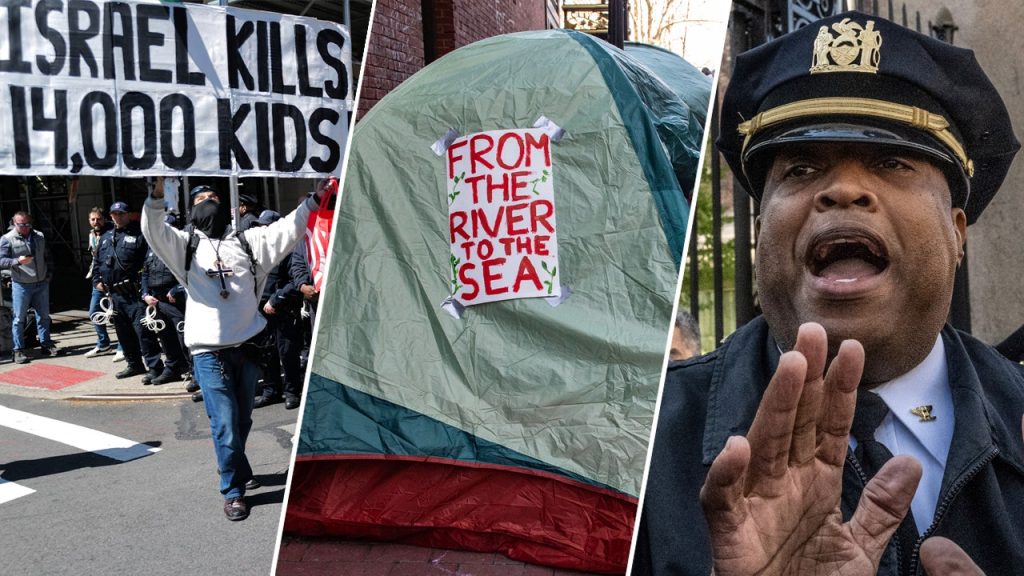Chaos has enveloped the Ivy League, specifically at Columbia University, where anti-Israel protests have led to arrests of more than 100 protesters and the campus being mostly closed with classes transitioning to virtual learning. The protests, which began with activists calling for the university to divest from companies tied to Israel, escalated as protesters violated campus policies by setting up tents and shouting anti-Semitic chants. The university administration tried to balance free speech rights with safety concerns and concerns of discrimination against Jewish students.
The protests at Columbia University included aggressive chants and slogans, with some protesters boldly claiming to be members of Hamas, the terror group responsible for a brutal attack. The protests turned violent as a Jewish student was kicked in the stomach and told to kill herself, sparking outrage and concerns for the safety of students. These actions led to the arrest of over 100 protesters who were issued summonses for trespassing. Among those arrested was Rep. Ilhan Omar’s daughter, further adding to the controversy surrounding the protests.
Hollywood actress Susan Sarandon joined the protests at Columbia University, leading chants against Israel and expressing support for Hamas. This drew criticism and comparisons to how the university would respond if students supported a hate group like the KKK. State and city officials condemned the anti-Semitic behavior and violence at the protests, emphasizing the need for a safe and inclusive environment for all students. The White House also spoke out against the antisemitic rhetoric at the protests, reiterating the need to combat hatred and violence targeting Jewish individuals.
In response to the escalating tensions, Columbia University President Shafik announced that all classes would be held virtually and urged commuting students not to visit the campus due to safety concerns. The president acknowledged the strained community bonds and the need for a reset to deescalate the situation. The ongoing protests have highlighted the challenges of balancing free speech with ensuring a safe and supportive environment for all students. Officials at various levels, including the White House, have reiterated the importance of condemning antisemitic behavior and violent rhetoric targeting Jewish individuals.
The protests at Columbia University have sparked a broader conversation about the boundaries of free speech, safety on college campuses, and combating antisemitism. The involvement of high-profile figures like Susan Sarandon and the arrest of over 100 protesters have drawn attention to the situation. As the university works to address security concerns and reaffirm community bonds, the protests and their aftermath serve as a reminder of the complex issues surrounding activism, free speech, and discrimination that continue to challenge institutions of higher education. The call for a reset and virtual classes reflect the ongoing efforts to navigate these challenges and ensure a safe and inclusive environment for all students.


